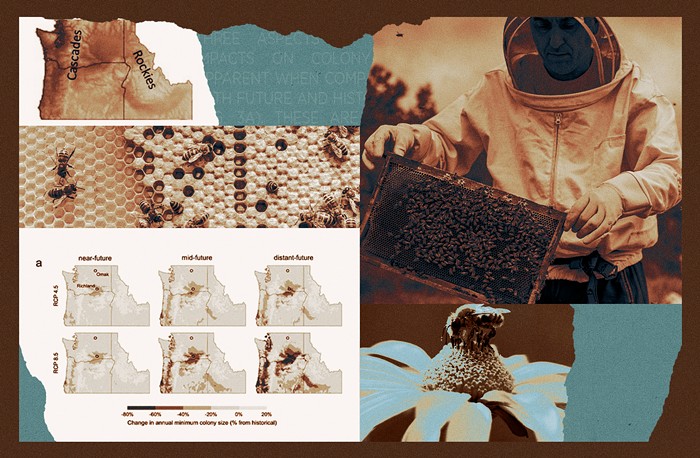
Why Tom Wolfe Is Wrong On the Evolution of Language: Tom Wolfe—an American author best known for pioneering the “New Journalism” movement in the 1970s, which emphasized literary techniques and the primacy of subjective truth—recently published the book The Kingdom of Speech, an extended critique of the idea that humans are genetically hardwired for language. Unfortunately, Wolfe’s critique relies heavily on a deeply-flawed argument that the theory of evolution itself fails as a scientific hypothesis and thus cannot be responsible for the emergence of speech, claiming erroneously that it is unobservable, makes no predictions, and doesn’t “illuminate hitherto unknown or baffling areas of science.” Instead, Wolfe argues, “speech” (his term, not mine) is an artifact of our consciousness, originating as mnemonic device but subsequently responsible for everything from our ability to plan to tool use. Now, the tireless evolutionary biologist Jerry Coyne has responded at length in a Washington Post editorial, pulling few punches: “Somewhere on his mission to tear down the famous, elevate the neglected outsider and hit the exclamation-point key as often as possible, Wolfe has forgotten how to think.”
Science Nonevent of the Week?: Last week, I highlighted the rare spectacle of a blooming corpse flower at the Volunteer Park Conservatory (but was unable to attend myself). According to KOMO news, however, the flower in question was “a dud”: never fully opening to release its trademark stench, the plant has already begun to decompose, a swan song cut short. Apologies to all disappointed parties.
Turns Out Tapir Shit Is Important For Carbon Storage: Most readers will be familiar with the major contribution tropical deforestation makes to anthropogenic climate change. Most readers will also be familiar with the ongoing 6th extinction, which will have a pronounced impact on the highly biodiverse tropics. But do individual extinction events in the rainforest themselves contribute to global warming, or are they largely a moral quandary? According to research published this month in the journal Nature Communications, the loss of specific species can indeed come at a high cost to our climate: if Tapirs and other animals that help trees reproduce by spreading seeds through their feces were to go extinct, forest-wide carbon storage would be reduced by up to 12%. Ensia.com has more here.
Forests, Climate Change, and Science Communication Through Sound: The Alexander Archipelago in southeastern Alaska is cloaked in archetypal Pacific Northwest temperate rainforest. And as the climate warms, this forest is changing: with snow-free winters exposing their roots to freezing temperatures, the ancient yellow-cedars that once dominated the group are gradually being replaced by western hemlock and Sitka spruce. It’s a slow, complex, and landscape-scale process, something difficult for both scientists and laypeople to understand intuitively. Which is why for ecologist Lauren Oakes, communicating what was happening required an unconventional approach. Recruiting fellow Stanford grad student and composer Nik Sawen to her cause, Oakes worked to transform her dataset into meaningful music through the process of data sonification. Oakes and Sawen used a different instrument for each of the five conifer species measured, with each note representing a tree, and each note’s pitch and volume corresponding to that tree’s height and diameter. Michelle Nijhuis has more on the over at The Last Word On Nothing, including an MP3 of the final product: “Since our ears are especially sensitive to patterns, sonifications can help scientists more fully communicate their results to the public—and even recognize hidden patterns in their own data.”














